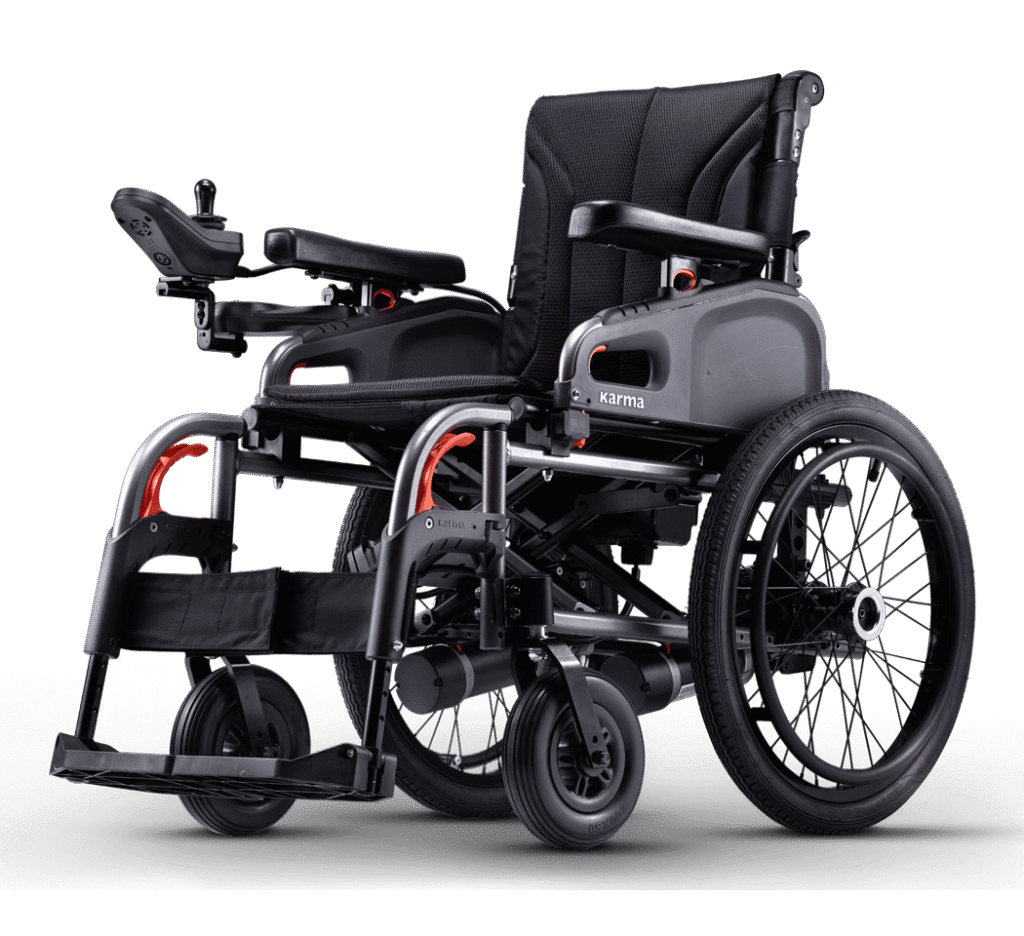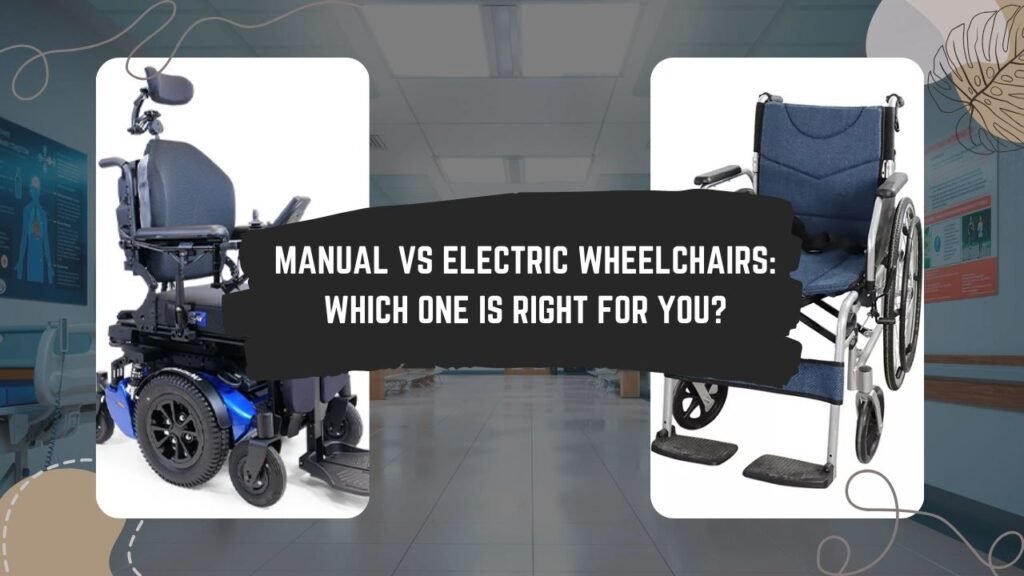Mobility aids have transformed the lives of millions, offering increased independence and support. Among them, wheelchairs are one of the most widely used tools available in two primary types: Manual vs Electric Wheelchairs. If you or a loved one is exploring mobility options, understanding the Difference Between Manual and Electric Wheelchair models is essential for making an informed decision.
This guide walks you through everything you need to know, including the pros, cons, and factors to consider when choosing a wheelchair.
What Is a Manual Wheelchair?
A Manual Wheelchair is a user-propelled chair designed for individuals with enough upper body strength or for those who have a caregiver to assist. It is a popular choice due to its lightweight design and ease of transportation.
Manual Wheelchair Benefits:
- Portable and often foldable, ideal for travel
- Affordable, with minimal maintenance needs
- Offers full control in tight indoor spaces
Manual wheelchairs’ benefits make them an excellent option for temporary or active users who can self-propel or have someone to assist them.

What Is an Electric Wheelchair?
An Electric Wheelchair, also known as a powered wheelchair, uses a battery-operated motor and joystick controls. It’s built for individuals with limited mobility or strength, offering freedom and comfort with minimal effort.
Electric Wheelchair Features:
- Controlled by a joystick; no physical strength needed
- Long battery range suitable for extended outdoor use
- Designed for comfort with adjustable seating and support
Electric wheelchair features make it ideal for those who need long-term, effortless mobility solutions.

Manual vs Electric Wheelchairs: Key Comparisons
When comparing Manual vs Electric Wheelchairs types, several differences stand out:
| Feature | Manual Wheelchair | Electric Wheelchair |
| Power Source | User or caregiver | Battery-powered |
| Ease of Use | Requires physical effort | Easy navigation with a joystick |
| Portability | Lightweight and foldable | Heavier and bulkier |
| Cost | Lower cost | Higher initial investment |
| Maintenance | Minimal upkeep | Requires charging and servicing |
| Ideal Users | Short-term or physically fit | Elderly or mobility-impaired |
Knowing the Difference Between Manual and Electric Wheelchair options allows users to choose the model that best fits their lifestyle and health condition.
Pros and Cons of Electric Wheelchairs
Understanding the pros and cons of electric wheelchairs is vital before investing in one:
Pros:
- Requires little to no physical strength
- Supports independence in daily tasks
- Smooth and comfortable ride over long distances
Cons:
- Expensive upfront and needs regular charging
- Heavier, harder to transport
- Requires more maintenance
Choosing a Wheelchair: Factors to Consider
When you’re choosing a Wheelchair, keep the following in mind:
- Physical Ability: Can the user propel themselves?
- Usage Duration: Is it for short-term recovery or long-term support?
- Budget: Manual wheelchairs are cost-effective, while electric ones are an investment.
- Daily Routine: Consider terrain, indoor vs. outdoor usage, and transport needs.
Taking all these factors into account will help you decide between a Manual or Electric Wheelchair.
Aoma Alliance: Supporting Your Mobility Journey
For those seeking reliable and affordable mobility solutions, Aoma Alliance offers a diverse range of wheelchairs and healthcare products. Whether you need a Manual Wheelchair or a powered one, Aoma Alliance is committed to enhancing comfort, independence, and care through quality products.
Final Thoughts
Both Manual and Electric Wheelchairs serve important roles in helping individuals lead active, independent lives. The right choice depends on your unique needs. If you’re looking for simplicity, affordability, and easy transport, the manual may be your pick. On the other hand, if independence and ease of movement are a priority, electric is the way to go.
Whichever you choose, be sure to evaluate the Manual vs Electric Wheelchairs features carefully. With the right choice, you’ll enjoy greater comfort, mobility, and freedom in everyday life.




